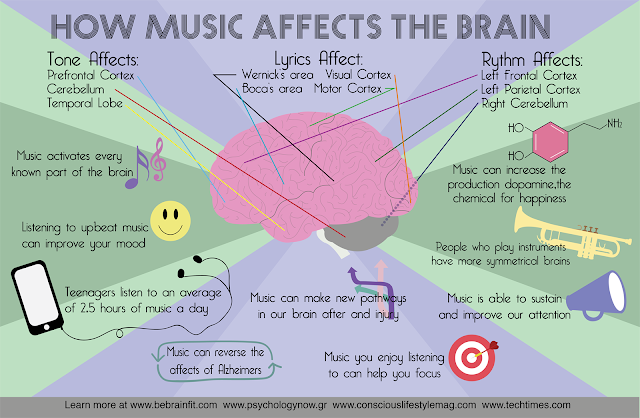Studying can be challenging, especially with constant distractions and pressure to stay focused. But How Music Can Help You Study might surprise you music can be a secret weapon, reducing stress, improving concentration and sparking creativity. These benefits are essential for a productive study session and can make learning more enjoyable and effective.
Certain types of music like classical lo-fi beats and nature sounds can create a calm, distraction free space that lets you dive into complex tasks with ease. From enhancing memory retention to boosting your mood, the benefits of music for studying are backed by science and real life experiences.
In this article, we’ll explore how different types of music can unlock focus and creativity, helping you make the most of your study time. Ready to turn up the volume on your learning? we’ll dive deep into the benefits of music for studying and how you can use it effectively.
How Music Can Help You Study?
Music can be a powerful tool to boost your study sessions, enhancing both focus and creativity. The right music can set the mood, helping your brain relax and concentrate better. Research suggests that certain types of music, especially classical and instrumental genres, can improve memory, reduce stress and increase productivity.
By tuning out distractions, music creates a comfortable learning environment where you can dive into complex subjects with ease. It’s not about any music, though choosing songs with no lyrics or steady rhythms can prevent distractions and help you stay immersed in your work.
The Science Behind Music and Study Performance
Listening to music during study sessions offers several benefits, from enhancing focus to boosting memory. Research shows that the effects of music on the brain are both calming and stimulating.
It engages parts of the brain linked to concentration, especially when you choose music without lyrics. For example, studies indicate that instrumental music blocks distractions, helping us maintain concentration longer.
Each type of music brings unique benefits. Studying with instrumental music, such as classical or ambient sounds, is effective because it doesn’t pull attention away with lyrics. It creates a calm atmosphere, letting the mind focus on tasks without interference.
Music Enhances Focus and Concentration

Music for concentration and focus is often instrumental, like classical or ambient sounds. These tunes create a quiet background that helps the mind stay attentive. For example, the Mozart Effect and studying suggest that classical compositions can improve spatial.
Ambient music for focus like nature sounds or white noise is also popular. Nature sounds bring a peaceful feel, lowering stress and keeping the mind on track. When used correctly, these sounds can be the best background music for studying.
How Music Can Help You Study goes beyond typical music playlists ambient sounds like nature noises and white noise are also highly effective. Nature sounds like rain or ocean waves, helping to reduce stress and keep the mind focused. When used correctly, these ambient sounds provide an ideal backdrop.
Types of Music That Boost Creativity and Productivity

Creativity thrives when the mind feels relaxed and open to new ideas. Music for creativity and inspiration is often unique for each person but generally, music with simple rhythms and pleasant tones works best. For instance, lo-fi beats for studying are known for mellow tones and a steady beat.
These genres are helpful to enhance creativity with music. Even certain types of electronic music are known to improve concentration and help students stay engaged with their work.
Classical Music
Classical music, known for its soothing and structured melodies, has a calming effect and is linked to improved concentration. Many people find it ideal for deep reading or complex problem solving, as it keeps the mind engaged without causing distractions.
Ambient Sounds
Ambient sounds, like nature noises or white noise, create a peaceful background that helps reduce stress. These sounds provide a subtle layer of focus without pulling attention away from your work, making them great for long study sessions.
Lo-fi Beats
lo-fi beats, with their soft rhythms and mellow vibes, are perfect for those who prefer a modern, relaxing atmosphere. Lo-fi’s repetitive beats can make focusing on repetitive tasks easier, helping you find a steady rhythm for productivity.
Memory Retention and Positive Emotional Effects

A positive mood can make learning feel easier and music has a way of lifting our spirits. The positive impact of music on mood helps to make challenging study topics seem manageable.
Notably music to boost memory retention works best when it’s familiar, as it triggers memories and connections in the brain. Creating a study music playlist with both new and familiar tunes can support long term memory retention.
Incorporate Music into Your Study Routine
Here’s a simple breakdown to get started:
| Task Type | Recommended Music |
| Deep Reading | Classical or Nature Sounds |
| Memorization | Lo-fi Beats or Ambient Music |
| Creative Work | Jazz or Relaxing Pop |
| Repetition/Practice | Instrumental Rock or Techno |
Once you identify the best style for each task, you can improve focus with music by using these playlists to target specific study goals.
Read also: Pickle Wheat: Bio, Age, Net Worth
Finding Your Study Rhythm

Finding your study rhythm means discovering the perfect balance between focus and relaxation to help you learn more effectively. When you find the right type of music to match your tasks, studying can feel smoother and less stressful.
For some people, upbeat, steady lo-fi beats are ideal for keeping energy levels up during long study sessions. For others, classical music or nature sounds create a calm atmosphere that helps them concentrate on complex material without getting distracted.
read also here Pickle Wheat: Bio, Age, Net Worth
FAQS:
How Music Boosts Creativity?
Music boosts creativity by freeing up your mind and helping you think outside the box. When you listen to the right music it can inspire fresh ideas.
How does music help you focus while studying?
Music helps you focus by creating a steady, calming background that blocks out distractions. Instrumental music, like classical or ambient sounds, keeps your mind clear.
How does music help students with creativity?
Music boosts creativity by sparking emotions and freeing the mind from stress. It encourages new ideas by creating an inspiring atmosphere.
What is the best music for focus?
Instrumental music like classical, ambient sounds or lo-fi beats is often best for focus.
What music stimulates creativity?
Music with smooth rhythms, like jazz, classical or lo-fi is great for stimulating creativity. These styles create a relaxing mood that encourages fresh thinking and new ideas.
Conclusion
Incorporating music into your study routine can transform the way you learn. Different styles help with different aspects, from focus to creativity. As research shows, choosing the right genre whether it’s classical music and productivity or natural sounds for relaxation can make a big difference.
Experiment with different types and see how they impact your study experience. Try creating a playlist for productive studying that matches each part of your study routine and soon you’ll find a rhythm that works best for you.

Hello, I’m Ruby Ember, a writer at azaadlifestyle. I explore the dynamic world of players and celebrities, delivering captivating insights and updates. Join me on azaadlifestyle.com for the latest in player stats and celebrity news.

